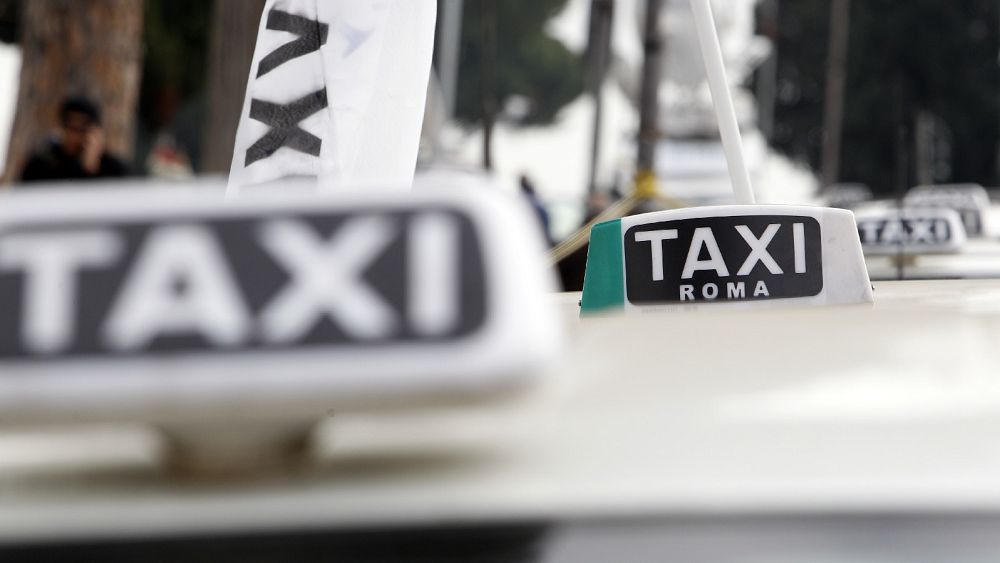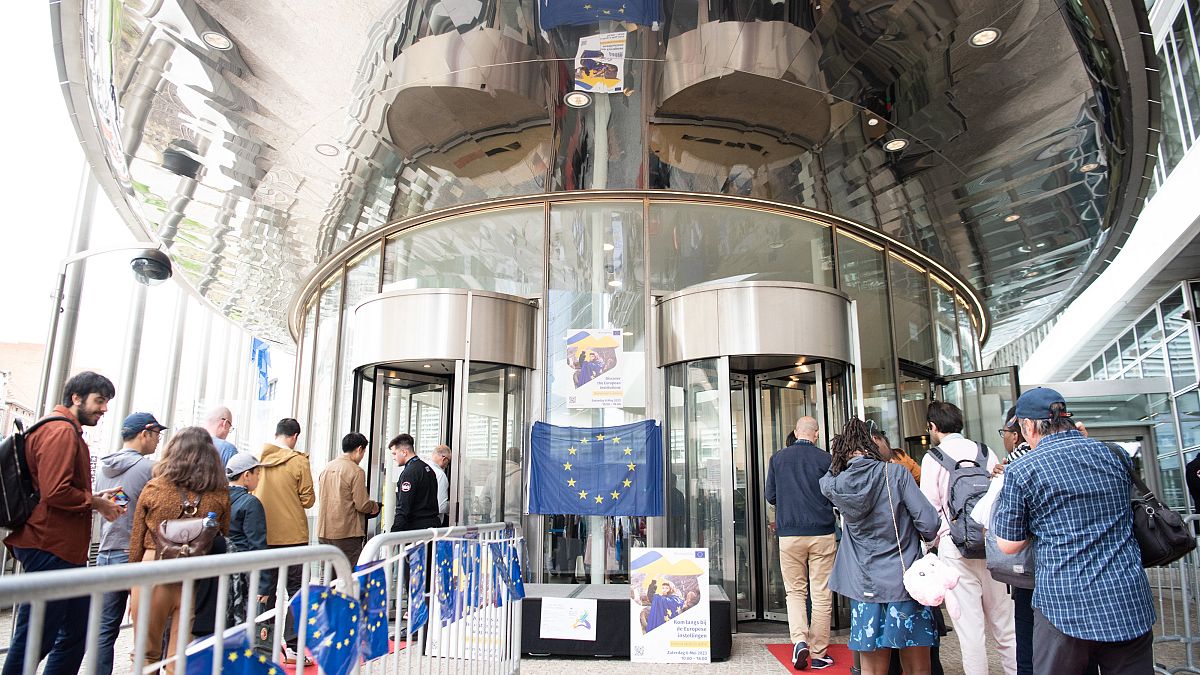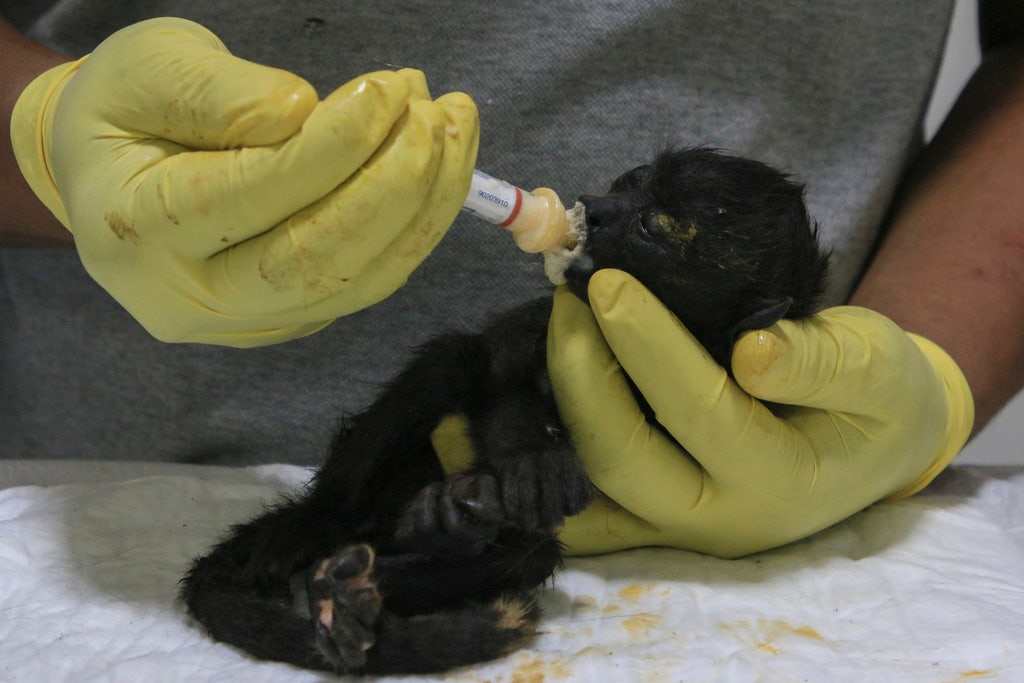World
Catching a taxi in Italy is virtually impossible. Here’s why

Taxi drivers’ unions have fiercely opposed any move to increase the number of licences necessary to practice the profession.
If you’ve ever tried catching a taxi in Italy, it’s likely you’ll think twice before attempting to repeat the experience. In spite of the heatwave that is currently gripping the country, long queues of people can be seen every day outside train stations or at the main clubs at night, waiting in vain for a white car to take them around. Phone calls to operators often remain unanswered, and rates can be surprisingly high.
As taxi drivers keep opposing any attempt to reform, the service remains regulated by outdated norms and is not able to meet a growing demand coming from both residents and tourists.
Part of the problem lies with the taxi licence system.
Italian taxis are legally considered a means of public transport: they’re regulated by a law originally approved in 1992 which, among other things, provides that only licensed professionals can work as taxi drivers. Licences should be granted by local authorities through recurring public calls for bids. However, these applications are extremely rare and generally offer a limited amount of new permissions.
Nowadays, the easiest way to obtain a licence is to buy one from a former taxi driver who doesn’t need it anymore: over the years, this system has fostered a parallel market with incredibly inflated prices, where the cost of a single licence can reach hundreds of thousands of euros, according to several investigative reports.
Traditionally, taxi drivers’ unions oppose the sale of new licences, fearing that the documents they spent so much money on could lose value: as in basic economic principles, the scarcer a commodity is, the more valuable it becomes.
Furthermore, according to trade unions, the introduction of new licences wouldn’t solve the bigger issue of mobility and public transportation in the country: “The national government and local administrators are using taxi drivers as scapegoats for the inefficiency of other services,” Nicola Di Giacobbe, national secretary for the trade union Unica Cgil, told Euronews.
Several governments over the past decades have tried reforming the sector, but the firm opposition of the taxi drivers’ lobby – considered one of the most powerful and problematic in Italy, along with beach resorts’ owners – succeeded in blocking every possible change.
A widespread problem
Currently, only 4,853 taxi licences are available in Milan — the second most populous city in the country. That’s the same amount as in 2003 when the last call for bids granted about 300 new permissions.
Yet since then the city’s population has swelled by about 100,000 to reach over 1.3 million and the tourism flows have also increased substantially.
“The fact that we need more taxis is crystal clear. During the busiest hours, like nights or weekends, calling a taxi can take 15 to 20 minutes, and that’s unacceptable,” Arianna Censi, Milan mobility and transports councilor, told Euronews.
This month, the city’s authorities asked the Lombardy Region to grant 1,000 new licences.
A report conducted by the municipality in 2019 – which remains the most updated one – showed that almost 30% of requests for a taxi made between 7pm and 9pm remained unanswered, while at night the amount went up to 42%.
“If you have to call a taxi several times, and wait hours for it, you’ll stop using the service,” Censi said. However, trade unions criticized the report, stating that it’s based on incomplete data and that it doesn’t take into account rides made without a call, when passengers get on board from the street or from designated parking areas. Censi agrees that the study is incomplete, but claims that many taxi associations didn’t provide the requested data.
The situation is not much different in Rome. The capital counts about 7,800 licences for nearly 2.9 million inhabitants and about 10 million foreign and domestic tourists per year. The last call for bids was in 2006.
While the amount is already insufficient, in all likelihood it won’t be able to meet the increased demand expected for the next Catholic Church Jubilee held in 2025. As such, the city is looking for ways to increase licences, but local authorities are struggling to strike a deal with trade unions.
Fighting Uber
Compared to the population, Rome has about 270 taxi licenses for 100,000 people, an amount much lower than in other European capitals: Paris, for instance, counts more than 800 licenses for 100,000 people, and Madrid about 470. Furthermore, users in many major European cities can also count on private, digital platforms like Uber or Lyft, which offer a very limited service in Italy and over the years have been targeted by several legal actions and protests.
“In Italy, Uber is not what you expect,” said Ariadna Bakhmatova-Pinnarelli, a Ukrainian woman who in 2022 moved from London to Milan to follow her Italian husband. Living in the outskirts of the city and without the possibility to drive, taxis often represent her only option to move around. However, Bakhmatova was disappointed with the service, claiming that many apps are shady about the charges and that drivers can be hard to find.
Uber started operating in Italy in 2013, and has been fighting the opposition of the drivers’ lobby ever since. At the moment, the company can only offer the “UberBlack” service, the most expensive one under which drivers must be legally recognised as chauffeurs. The “UberPop” option, which allowed everyone to drive, was banned in 2015.
In July 2022, the union IT Taxi signed a deal with Uber which allows users in dozens of cities to book rides with traditional taxis through the Uber app. However, a year later, it looks like this attempted solution was not very helpful, according to both residents and tourists.
“Getting a taxi in Lake Garda [in Northern Italy] is impossible,” Dave Johnson, a British citizen who often travels to Italy, told Euronews. Last week, after calling three different providers, he and his family had to wait an hour to get a hold of a car. “The car was nice in the end, but the ride was expensive,” he said.
His experience was not an exception, unfortunately.

World
Ombudsman probes Commission's senior staff 'revolving door'

The move of an experienced senior official to a private law firm has prompted a probe by Emily O’Reilly, responsible for investigating suspected maladministration.
The latest move of a senior European Commission antitrust official to a private law firm has prompted a probe by the EU’s Ombudsman, who is worried about conflicts of interest.
Revolving doors between the private and public sector can have a “corrosive effect” on public trust, fueling euroscepticism and undermining EU interests, said Emily O’Reilly, in a letter published today (22 May).
In an 8 May press release, law firm Paul, Weiss announced the hire of Henrik Morch, a director in the Commission’s antitrust arm with a 30-year career.
The New York-based law firm cited Morch’s “extensive experience” in handling merger cases as a benefit to the law firm’s clients – a perhaps unfortunate turn of phrase that raised particular hackles for O’Reilly.
“The clear impression is that the Commission has allowed one of its senior officials to work for a non-EU company that anticipates major benefits from that inside knowledge,” said O’Reilly, who investigates suspected maladministration in EU institutions.
“As this move was not forbidden, the Commission should, without delay, publish the restrictions it has placed on the move,” added her letter, dated 17 May.
To make matters worse, she said, Paul, Weiss hasn’t been clear about its Brussels activities, and the Commission hasn’t said if it will impose any restrictions on Morch’s work with it.
O’Reilly called for the Commission to reform its practices in a probe which closed in 2022 – and which specifically concluded that officials from the competition directorate-general, DG COMP, should be banned from moving to work at private firms that work in related issues.
That followed a number of controversial hires, including the move of Carles Esteva Mosso, a deputy director-general at DG COMP, to become an antitrust partner at Latham & Watkins, and that of Adam Farkas, executive director of the EU’s banking agency, to lobby group the Association for Financial Markets in Europe.
Recent research by Transparency International, published just weeks before the bloc goes to the polls, shows that MEPs collectively earn millions of euros from jobs additional to their lawmaker salary.
Those extra paid positions are permitted under current rules – but the lobby group cites concerns over conflicts of interest, particularly when MEPS work for company that lobby the EU.
Morch, the Commission and Paul, Weiss did not immediately respond to a request for comment.
World
New Caledonia protesters, police play 'cat and mouse' before Macron arrives

World
Howler monkeys dropping dead, falling from trees due to excessive heatwave: report

The extreme heatwave in Mexico is not only affecting the environment, it’s wreaking havoc on the howler monkeys and causing them to fall dead out of trees, the Associated Press reported.
“They were falling out of the trees like apples. They were in a state of severe dehydration, and they died within a matter of minutes,” wildlife biologist Gilberto Pozo described what he witnessed to the AP.
In the city of Tecolutilla, Tabasco state, it was reported that the dead monkeys started appearing on Friday, when a local volunteer fire-and-rescue squad showed up with five of the monkeys in the bed of the truck.
So far, at least 83 howler monkeys have been found dead in the Gulf coast state of Tabasco. However, many others were rescued by local residents, with five being rushed to a local veterinarian for immediate care.
NEVADA WILDLIFE MYSTERY SOLVED, SUSPECTED WOLVES WERE ACTUALLY COYOTES
A veterinarian feeds a young howler monkey rescued amid extremely high temperatures in Tecolutilla, Tabasco state, Mexico, Tuesday. Dozens of howler monkeys were found dead in the Gulf coast state while others were rescued by residents who rushed them to a local veterinarian. (AP Photo/Luis Sanchez)
“They arrived in critical condition, with dehydration and fever,” Dr. Sergio Valenzuela told the AP. “They were as limp as rags. It was heatstroke.”
At least nine cities in Mexico have set temperature records as of May 9, with Ciudad Victoria, in the border state of Tamaulipas, registering 117 degrees Fahrenheit, according to the AP. The heatwave has been blamed on the deaths of at least 26 people since March, the AP reported.
Valenzuela said that the monkeys appeared to be on the mend, stating that they were “recovering, aggressive, and biting again.”
The howler monkey, which is the “loudest of all the monkeys,” is known for its loud whooping bark or roar, according to National Geographic.
Pozo added that many local residents wanted to help the monkeys, even adopt them, but he cautioned them on this.
WILD MONKEYS SPOTTED ROAMING FLORIDA NEIGHBORHOODS: ‘ABSOLUTELY CRAZY’

Howler monkeys sit in a cage at a veterinarian’s clinic after they were rescued amid extremely high temperatures in Tecolutilla, Tabasco state, Mexico, on Tuesday. (AP Photo/Luis Sanchez)
“The truth is that babies are very delicate, they can’t be in a house where there are dogs or cats, because they have pathogens that can potentially be fatal for howler monkeys,” Ponzo described, stressing they must be rehabilitated and released into the wild.
Pozo’s group has set up a special recovery stations for the monkeys and is working to organize a team of specialized veterinarians to give the monkeys the care they need.
Howler monkeys also get almost all the water they need from the food they eat, which is another reason the heatwave has been detrimental to their survival.
Pozo stated that several factors led to the death of the monkeys, including high heat, drought, and forest fires.
THAI WILDLIFE OFFICIALS TO REMOVE HUNDREDS OF MONKEYS FROM POPULAR TOURIST SPOT

A howler monkey sits inside a cage with others at a veterinarian clinic after they were rescued amid extremely high temperatures in Tecolutilla, Tabasco state, Mexico, on Tuesday. (AP Photo/Luis Sanchez)
Days after the monkeys began to drop dead, Mexico’s President Andrés Manuel López Obrador acknowledged the issue, saying he had heard about it on social media.
He then congratulated Valenzuela on his efforts and said the government would seek to support the work.
The Associated Press contributed to this report.
-

 News1 week ago
News1 week agoSkeletal remains found almost 40 years ago identified as woman who disappeared in 1968
-

 World1 week ago
World1 week agoUkraine’s military chief admits ‘difficult situation’ in Kharkiv region
-

 Movie Reviews1 week ago
Movie Reviews1 week agoAavesham Movie Review
-

 Education1 week ago
Education1 week agoVideo: Protesters Scuffle With Police During Pomona College Commencement
-

 World1 week ago
World1 week agoEU's divided right wing can disrupt if it finds greater unity: experts
-

 News1 week ago
News1 week agoNevada Cross-Tabs: May 2024 Times/Siena Poll
-

 News1 week ago
News1 week agoStudent protests caused mostly minor disruptions at several graduation ceremonies
-

 World1 week ago
World1 week agoPro-Palestinian university students in the Netherlands uphold protest
















